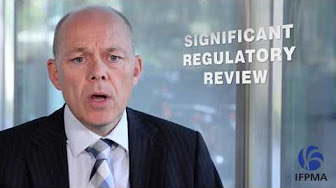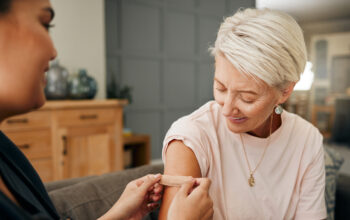Vaccine, interrupted: simplifying regulatory complexity to avoid delays in immunization
Vaccines are considered one of the most successful and cost-effective public health interventions, protecting us from many infectious and childhood diseases. In fact, over the past 50 years, vaccines have saved more lives worldwide than any other medical product or procedure.
Being complex biological products, vaccine marketing authorization applications and production follow strict regulatory and manufacturing requirements. For this reason, most vaccine manufacturers generally produce their global supply of each vaccine at only one or two sites – a major difference to the production of pharmaceuticals which in some cases can be less complex and therefore allows many more sourcing options.
After gaining initial regulatory approval, manufacturers may be required to make changes to the product, also referred to as variations. The need for variations can be due to one of many reasons, e.g. to reflect new regulatory standards, new safety requirements, changes to the manufacturing process or updated product labelling information. Such changes require the oversight of national regulatory authorities that allow the continued licensing of the “upgraded” vaccine.
The regulatory requirements for variations to vaccines are increasingly complex and the length of time required for an application review varies from country to country. Some countries, for example, will wait for a reference country approval before initiating their own review. Others may request the manufacturer to produce additional stability or clinical data. Moreover, limited resources can further delay approval times, in some instances resulting in a wait of up to 4 years to complete the approval process. The knock-on effect can be a delay in access to the best available vaccine or at worst the whole supply chain is put at risk.
This leads us to the question, how can we streamline the management of variations, and bring clear benefits to patients, whilst ensuring fair and equitable access to vaccines?
 Some headway has been made by the WHO with its vision to encourage countries that are geographically close to pool their resources and work together on the review process. Such efforts are being observed in Africa as supported by the Bill & Melinda Gates Foundation, where neighbouring countries collaborate on post approval reviews.
Some headway has been made by the WHO with its vision to encourage countries that are geographically close to pool their resources and work together on the review process. Such efforts are being observed in Africa as supported by the Bill & Melinda Gates Foundation, where neighbouring countries collaborate on post approval reviews.
Manufacturers and regulatory authorities have demonstrated that they can work together to make essential vaccines rapidly available when required to do so. A great example of this was the H1N1 pandemic in 2009, where efforts were doubled to approve and deliver stocks of a new vaccine. Stakeholders need to reflect on these learnings and develop long-term solutions of collaboration that are sustainable outside emergency situations.
One simple idea, for example, may be to create a global system of categorization of minor and major changes, so that minor variations can pass through a fast track notification process, which in turn would allow resources to be focused on faster reviews of more complex variations. Clear categorization of variations is a win-win both in time and energy for industry and regulators, and most importantly it will help in getting improved vaccines to community more quickly.
As countries review their regulatory processes and frameworks, it is advisable to do so by using the available resources and taking a globally recommended approach rather than “going it alone.” The WHO has published new guidance on post approval changes which is available for countries as a reference.
As we can see, progress is being made, yet more actionable ideas need to be developed. Country regulatory authorities and the pharmaceutical industry should consider how they can collaborate better to secure timely and equitable access for all, so that we continue to see vaccines benefit as many people as possible.
This piece was posted as an exclusive for GEN
Author





